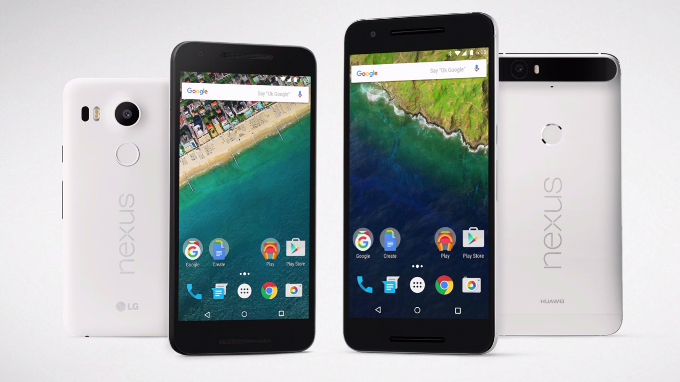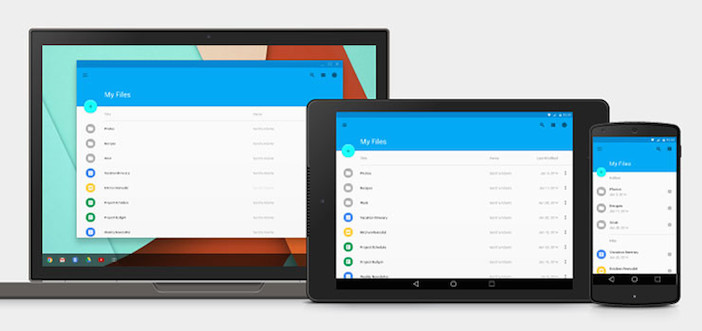A small piece on how Google's switch to in-house device development could affect the future of the company and Android.

Once a year, Google launches new Nexus devices designed to show the world Android at its best. Through the prism of Nexus smartphones, we can see the clean version Android, without third-party add-ons and software from device manufacturers. These devices also serve as a kind of demonstration stand for the latest Google applications and services, which are often not available on devices based on Android, especially in emerging markets, and are updated almost immediately after the company releases the corresponding update / patch.
But, these smartphones are not produced by Google. Instead, the company selects one of its OEM partners to create a new Nexus model / s. This year, behind the new Nexus devices are LG (5X) and Huawei (6P). Despite the fact that the software company works closely with its partners, it cannot monitor devices in the way that Apple does with iPhone and Microsoft with Surface.

It's time for Google to start releasing their hardware
At least for smartphones, or at least for the Nexus line and a series of budget phones for emerging markets. Yes, Google owned an independent phone maker (Motorola). Yes, the company already has experience in creating devices, both successful (Chromecast, Chromebook Pixel) and not so much (Nexus Q). However, with the potential of Google and the resources to bring in more engineers and designers, it is feasible to create unique devices in-house and then outsource their production to a third-party company.
Five reasons to move to a new model of work
First, more and more users and manufacturers are realizing the close relationship between software and hardware. The “soft” platform works much better on a hardware base specially created for it. This principle has become one of the main components of success Apple and the reason for Microsoft, after many years of resistance to this trend, to go into the field of device manufacturing.
A masterful combination of software platform and hardware Apple brought fingerprint recognition technology to market two years earlier than Google. For the same reason, 3D Touch appeared, a technology that allows you to recognize the force of pressing the screen and carry out specified commands based on it. 3D Touch may not take off, it may eventually become popular, but, in any case, you only need to take on such technology if you have control over the software and hardware components. Undoubtedly, other manufacturers can oppose something, such as, for example, Huawei with its analogue 3D Touch, but the experience Apple over the past 15 years shows that really cool solutions are born with combined by the manufacturer of the hardware and software platform.
A Google executive I approached for comment said the company believes the same goal can be achieved through close collaboration with the Nexus hardware makers. For example, he stressed that the new Nexus smartphones use the same camera modules and identical fingerprint sensors, although they were produced by different companies. But I believe that such a specification of components does not compare with the advantages that the simultaneous development of 'software' and a hardware platform can provide. For example, Dual Mode in Windows, running on laptops and tablets, debuted on Surface hardware.

Second, Google is transforming Android into its sole platform for future development by linking it to Chrome OS, the laptop operating system. This means that Android could work on laptops and even PCs. I believe this is the most compelling reason for building Google-made hardware for the Nexus line, even as other companies continue to use the company's software. If Google does this and captures not only phones and tablets, but also laptops, then the new products will radically change the balance of power in the market and will become the first convincing alternative to the platform Apple for desktop PCs in a long time.
Third, although Android as a platform dominates the global market and squeezes Apple in market share, Google has only one software partner with global reach, significant market share and profitability , this is Samsung. But this partner's sales have not shown steady growth in recent quarters. The Google-built machine should ensure that Android is in the hands of a wealthy manufacturer with a stake in the OS's success.
Fourthly, device manufacturers for emerging markets are increasingly using versions Android in their gadgets without Google applications and services, which does not give the company the opportunity to make money on them. A large player Amazon uses his own fork for this Android. Such a policy is possible due to the open and free nature Android and so far Google cannot find a way to combat this trend. A low-cost smartphone made and branded by Google specifically for these markets will fit perfectly into this struggle.
Fifth, the European Union launched an investigation into the legality of Google's requirements to pre-install its applications on devices Android of third-party manufacturers. If the outcome is unfavorable to Google, the outcome could be disastrous for the company. Another reason to start controlling your destiny.
Make Android better through innovation in 'hardware'
Yes, I understand that even the very fact of ownership Motorola annoyed Google partners, and branded devices will cause a similar reaction. Hardware partners Microsoft also grumble about Hybrid Surfaces. But such situations can be solved, albeit for a while, as it does now Microsoft. This approach will be especially justified if Google restricts and directs the release of its “hardware” to certain categories, such as the Nexus line and devices for users in emerging economies. Android reaches users in the 'iron shell', it can both positively and negatively complement the OS. So why doesn't Google try to make Android better by building its own cutting edge hardware?
Original material by Walt Mossberg
Elir: one of the articles, after reading which you think: 'Yes, yes, yes! It’s as if the author took and stated my assumptions in writing! ' In fact, such ideas not only 'fly in the air', but already find some reflection in real actions. So, according to rumors from the vastness of the web, Google has negotiated with some microprocessor manufacturers about the possibility of developing products based on the company's preferences (hello, fragmentation!). It seems that users Android will only benefit from the model for creating devices proposed by the author, I personally am very impressed with it. Moreover, as the author splendidly noted, the practice of developing its own devices will solve several urgent problems for Google at once. Go, Google, Go.
